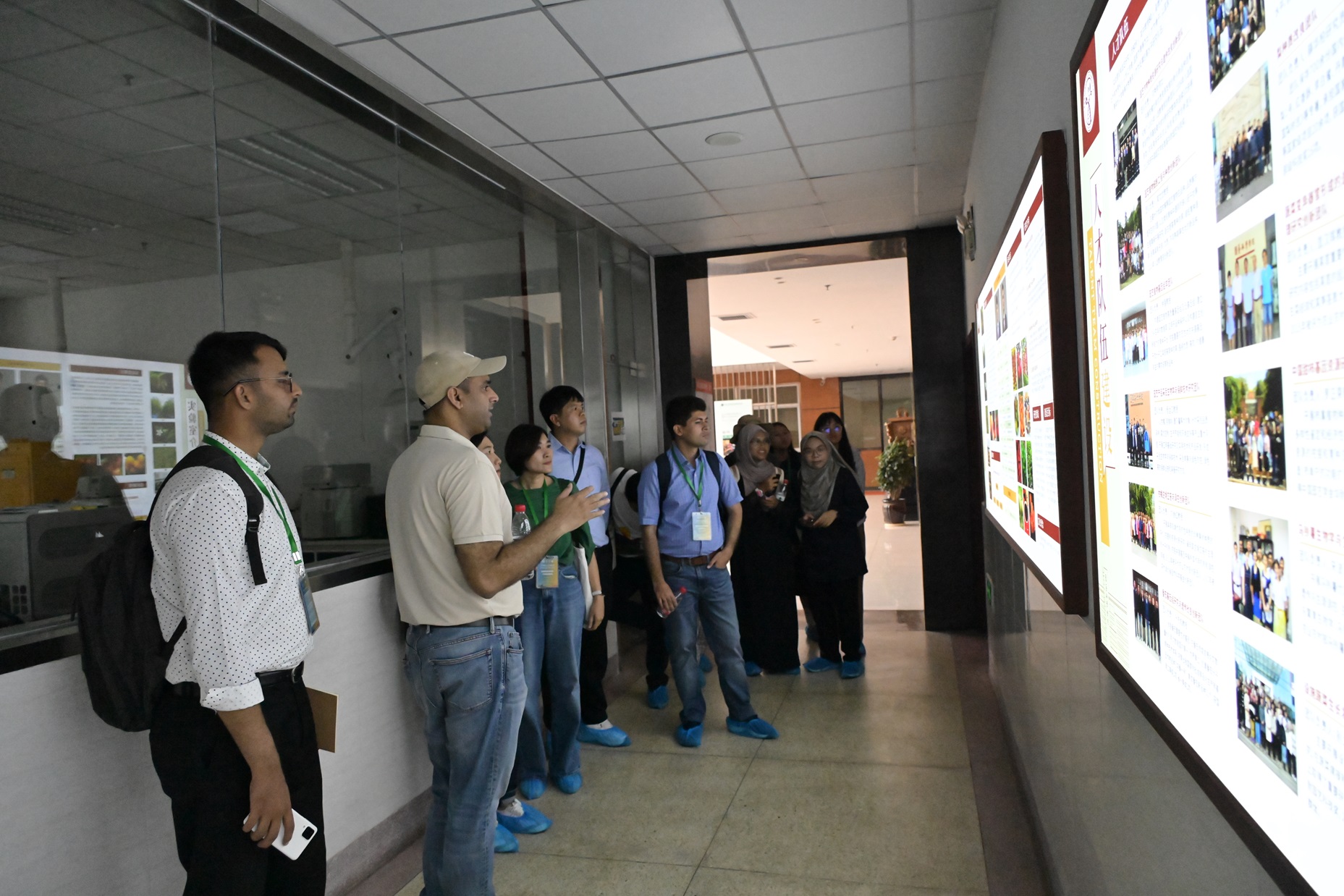
From August 15 to 29, the International Summer School for Horticultural Plant Biology was held at Huazhong Agricultural University (HZAU). The event was organized by the China Scholarship Council and co-hosted by the College of Horticulture & Forestry Sciences, the National Key Laboratory for Germplasm Innovation & Utilization of Horticultural Crops, and the Joint International Research Laboratory of Germplasm Innovation & Utilization of Horticultural Crops. Over 40 participants, including faculty members, young researchers, and students from Chiang Mai University (Thailand), Universiti Putra Malaysia, the University of Agriculture Faisalabad (Pakistan), PMAS Arid Agriculture University Rawalpindi (Pakistan), and both young faculty members and student volunteers from HZAU, attended the summer school.
During the opening ceremony on August 16, Associate Professor and Foreign Affairs Commissioner Shoaib Munir provided an overview of the courses and introduced the facilities at the College of Horticulture & Forestry Sciences, including the National Key Laboratory and the Gene Building. The program featured a series of expert-led lectures and laboratory sessions conducted by distinguished faculty members including Robert M. Larkin, Fei Zhang, Yuyang Zhang, Zhengming Wang, Xiaopeng Fu, Pengwei Wang, Zongcheng Lin, Munenori Kitagawa, Yunliu Zeng, and Xiongjie Zheng. Participants gained comprehensive insights into the latest scientific advancements and practical skills in horticultural plant biology from expert lectures, hands-on laboratory courses, industry visits, and cultural exchanges.
The curriculum covered a wide range of topics, including apical meristem development, plant secretory structures, plant grafting techniques, epigenetics, photosynthesis, starch metabolism in kiwifruit, plant developmental biology, carotenoid biosynthesis, and molecular methods for improving tomato flavor. The practical courses provided hands-on experience in secondary metabolite analysis, molecular genetics of chloroplast development, plant cell and developmental biology, cell-to-cell communication, plant grafting, and developing molecular markers for tomatoes.
In addition to the on-campus activities, participants visited the Hubei Academy of Agricultural Sciences and Chuwei Biotechnology Seed Company to learn about the practical applications of horticultural research. A cultural excursion on August 26 enriched their understanding of local traditions and customs, further enhancing the cross-cultural aspect of the program.
At the closing ceremony on August 28, Long Jianfei, Secretary of the Party Committee of the College of Horticulture & Forestry Sciences, Xu Qiang, Deputy Dean of the College and Director of the National Key Laboratory, and other faculty representatives were present. International participants delivered technical presentations to share their research progress and learning experiences, contributing to the spirit of academic exchange and collaboration. Miss Phuangphet Hemrattrakun, a faculty member from Chiang Mai University, expressed gratitude to the College of Horticulture & Forestry Sciences for this valuable learning opportunity and looked forward to more collaborative initiatives with HZAU. Similarly, Miss Nur Hana Damia Binti Nor Akmal, an undergraduate student from the Universiti Putra Malaysia, and Mr. Rana Muhammad Azhar Ali, a young researcher from Pakistan, shared their positive experiences and highlighted the program’s impact on their academic and professional growth.
In his closing remarks, Xu Qiang emphasized the importance of international programs for promoting connections between HZAU and foreign institutions. He hoped for future academic exchanges and research collaborations with the participating institutions.
Source: HZAU News Center

